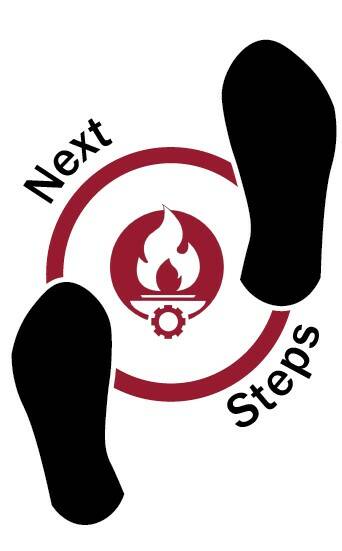RCC pilots new adult ed program ‘Next Steps’ | Richmond County Daily Journal
RCC pilots new adult ed program âNext Stepsâ Richmond County Daily Journal


Richmond Community College Launches Next Steps Program for Adults with Intellectual and Developmental Disabilities

Richmond Community College (RichmondCC) is set to pilot a new program called Next Steps this spring, aimed at assisting adults with intellectual and developmental disabilities (IDD) in entering the workforce. The program, which is student-centered and job-focused, aims to provide contextualized academic instruction, workplace readiness skills, and opportunities for enrollment in integrated career training programs.
Supporting the Sustainable Development Goals
The Next Steps program aligns with the Sustainable Development Goals (SDGs) by promoting inclusive and equitable quality education (SDG 4), decent work and economic growth (SDG 8), and reduced inequalities (SDG 10). By equipping individuals with IDD with employable skills, the program contributes to their social and economic empowerment, ultimately improving their quality of life.
Information Session
An information session about Next Steps is scheduled for Monday, Nov. 13, at 5:30 p.m. on the Hamlet Campus in the Grimsley Building, room 102. The public is welcome to attend and learn more about this innovative program.
Changing Lives through Education and Training
Dr. Dale McInnis, president of RichmondCC, expressed the college’s commitment to providing education and training to all students, with the goal of transitioning them into higher education or the workforce. He believes that the Next Steps initiative will change the lives of many individuals by equipping them with meaningful and employable skills.
Recent data shows that 65 percent of students with an intellectual disability who completed a higher education program had a paid job one year after graduation, highlighting the positive impact of educational opportunities on employment outcomes for individuals with IDD.
Addressing Adult Education Needs
Next Steps is part of RichmondCC’s College & Career Readiness department, which operates under the federally funded WIOA Title II Adult Education program. This program provides free adult basic education, high school equivalency, adult high school, and English as a Second Language classes. In Richmond and Scotland counties, it is estimated that around 19 percent of adults older than 25 do not have a high school diploma, highlighting the need for adult education programs in the community.
Despite the increasing demand for College & Career Readiness programs, resources to support adult education have decreased. According to the Coalition on Adult Basic Education (COABE), declining state and federal funds have resulted in fewer adult learners being able to access services. Out of the 44 million adults in the U.S. with low basic skills, only 1.5 million are served by federally-funded adult education programs.
Support from RichmondCC’s Foundation
RichmondCC relies heavily on the college’s Foundation and the generosity of donors to support programs such as adult education. The Foundation has played a crucial role in eliminating financial barriers for students, including paying for High School Equivalency testing fees and making graduation gowns affordable for all adult education graduates. Additionally, the Foundation awards scholarships to all adult education graduates, further supporting their educational and career advancement.
Scholarships available for all adult education graduates include:
- Finish for Your Future: Up to $1,000 in scholarship money awarded to all adult education graduates who enroll in an academic program at RichmondCC
- Conder Basic Skills Graduate Scholarship
- Joseph R. Kester Excellence in Adult Education Scholarship
- Stancil Memorial Scholarship
- RCC Trustees Basic Skills Scholarship
Dean of Adult Education Nicole Worley emphasized the transformative impact of the services provided by RichmondCC’s College & Career Readiness department. She highlighted the value of raising awareness about these programs to increase support and community engagement.
Celebrating Achievements
To celebrate the achievements of high school equivalency and adult high school students, RichmondCC has added a second graduation ceremony in December. Traditionally, the college has held only one graduation ceremony in the summer. Furthermore, 10 students have been nominated by their instructors for a paid membership to the National Adult Education Honor Society, providing them with national recognition for their academic and workplace excellence.
Get Involved
To learn more about the adult education programs at RichmondCC or to become a donor and support these programs, please contact the college at (910) 410-1700.
SDGs, Targets, and Indicators
1. Sustainable Development Goal: Quality Education
- Target 4.3: By 2030, ensure equal access for all women and men to affordable and quality technical, vocational, and tertiary education, including university.
- Indicator 4.3.1: Participation rate of youth and adults in formal and non-formal education and training in the previous 12 months.
2. Sustainable Development Goal: Decent Work and Economic Growth
- Target 8.5: By 2030, achieve full and productive employment and decent work for all women and men, including for young people and persons with disabilities, and equal pay for work of equal value.
- Indicator 8.5.1: Average hourly earnings of female and male employees, by occupation, age group, and persons with disabilities.
3. Sustainable Development Goal: Reduced Inequalities
- Target 10.2: By 2030, empower and promote the social, economic, and political inclusion of all, irrespective of age, sex, disability, race, ethnicity, origin, religion or economic or other status.
- Indicator 10.2.1: Proportion of people living below 50 percent of median income, by age, sex, and persons with disabilities.
Analysis
The article discusses a new program called Next Steps that aims to help adults with intellectual and developmental disabilities (IDD) enter the workforce. This program aligns with several Sustainable Development Goals (SDGs) and their targets:
1. Sustainable Development Goal: Quality Education
The Next Steps program provides contextualized academic instruction, workplace readiness skills, and opportunities for enrollment in integrated career training programs. This aligns with Target 4.3, which aims to ensure equal access to affordable and quality technical, vocational, and tertiary education for all. The program’s focus on supporting adults with IDD in their transition to higher education or the workforce contributes to achieving this target.
2. Sustainable Development Goal: Decent Work and Economic Growth
The Next Steps program aims to help adults with IDD gain meaningful and employable skills, enabling them to enter the workforce. This aligns with Target 8.5, which seeks to achieve full and productive employment and decent work for all, including persons with disabilities. The program’s goal of facilitating the entry of adults with IDD into the workforce contributes to achieving this target.
3. Sustainable Development Goal: Reduced Inequalities
The Next Steps program focuses on empowering and promoting the social and economic inclusion of adults with IDD, irrespective of their disability status. This aligns with Target 10.2, which aims to promote the social, economic, and political inclusion of all individuals, including persons with disabilities. By providing opportunities for adults with IDD to gain employable skills and enter the workforce, the program contributes to achieving this target.
The article does not explicitly mention any indicators that can be used to measure progress towards the identified targets. However, potential indicators that could be relevant include:
- Indicator 4.3.1: Participation rate of adults with IDD in formal and non-formal education and training programs.
- Indicator 8.5.1: Average hourly earnings of adults with IDD in the workforce.
- Indicator 10.2.1: Proportion of adults with IDD living below 50 percent of median income.
Table: SDGs, Targets, and Indicators
| SDGs | Targets | Indicators |
|---|---|---|
| Quality Education | Target 4.3: By 2030, ensure equal access for all women and men to affordable and quality technical, vocational, and tertiary education, including university. | Indicator 4.3.1: Participation rate of youth and adults in formal and non-formal education and training in the previous 12 months. |
| Decent Work and Economic Growth | Target 8.5: By 2030, achieve full and productive employment and decent work for all women and men, including for young people and persons with disabilities, and equal pay for work of equal value. | Indicator 8.5.1: Average hourly earnings of female and male employees, by occupation, age group, and persons with disabilities. |
| Reduced Inequalities | Target 10.2: By 2030, empower and promote the social, economic, and political inclusion of all, irrespective of age, sex, disability, race, ethnicity, origin, religion or economic or other status. | Indicator 10.2.1: Proportion of people living below 50 percent of median income, by age, sex, and persons with disabilities. |
Behold! This splendid article springs forth from the wellspring of knowledge, shaped by a wondrous proprietary AI technology that delved into a vast ocean of data, illuminating the path towards the Sustainable Development Goals. Remember that all rights are reserved by SDG Investors LLC, empowering us to champion progress together.
Source: yourdailyjournal.com

Join us, as fellow seekers of change, on a transformative journey at https://sdgtalks.ai/welcome, where you can become a member and actively contribute to shaping a brighter future.







